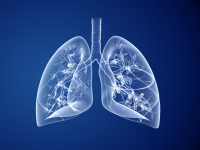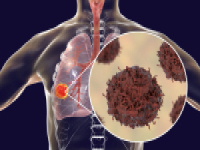Articles and Blogs
 |
Expert Addresses Lung Cancer and Youth Nicotine Use Despite stricter regulations on tobacco products, the lure of smoking continues to entice young individuals. Monica Gilles, MAS, RRT, NCTTP, tobacco treatment coordinator at Rutgers Cancer Institute and RWJBarnabas Health, shares information about youth tobacco use and the importance of quitting smoking for lung cancer prevention. Read more |
 |
The Evolution of Lung Cancer Surgery For many years, the standard of surgical care for such patients has been to remove the entire large section, or lobe, of the lung that contains the tumor. Now, newer techniques allow for even smaller incisions and faster healing times for patients. Richard Lazzaro, MD, chief of Thoracic Surgery for the RWJBarnabas Health Southern Region and Rutgers Cancer Institute, the state’s leading cancer center and only National Cancer Institute-designated Comprehensive Cancer Center, shares more. Read more
|
 |
Disparities in Lung Cancer Detection: Moving Toward Equity & Inclusion Communities, organizations and health professionals are taking action to improve inequalities in lung cancer detection. Anita Kinney, PhD, RN, FAAN, FABMR director of the Cancer Health Equity Center of Excellence, explains the impact of disparities on lung cancer, how these disparities are being addressed today and where to find screening resources. Read more |
 |
The Impact of Lung Cancer on the Hispanic Community While the number of new lung cancer cases continues to decrease, partly because people are quitting smoking, outcomes vary among people of different races and ethnicities, including people within the Hispanic community. Read more |
Resources
Rutgers Tobacco Dependence Program
Lung Cancer Recommended Websites
To request a lung cancer screening, visit rwjbh.org/lungscreening

